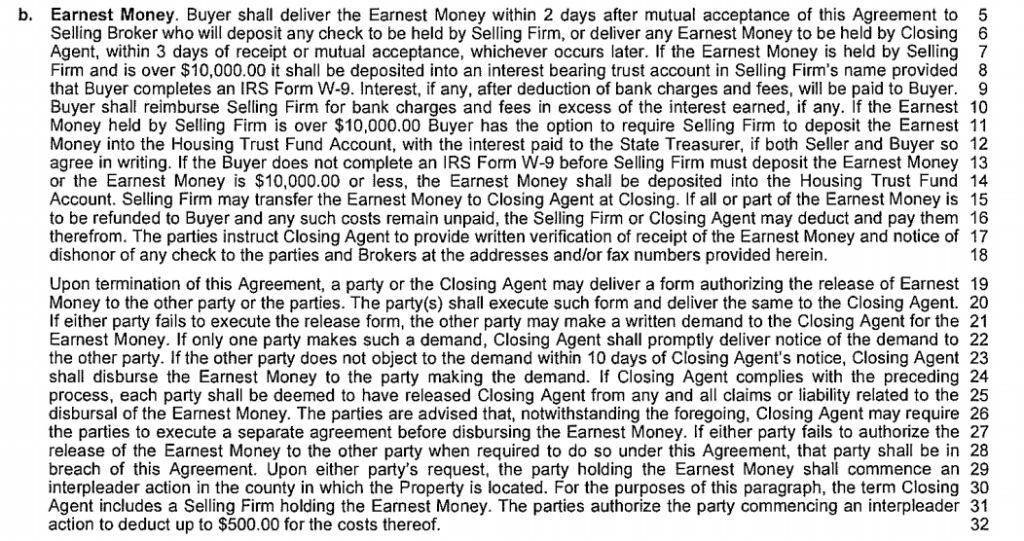 The recent changes to paragraph b “Earnest Money” in the NWMLS Purchase and Sale agreement (Form 21) finally gives escrow the authorization they need to assist in the release of the earnest money upon termination of the agreement. We are very pleased with this change; it will not only eliminate delay but will result in happier buyers, sellers, brokers and happier closing agents.
The recent changes to paragraph b “Earnest Money” in the NWMLS Purchase and Sale agreement (Form 21) finally gives escrow the authorization they need to assist in the release of the earnest money upon termination of the agreement. We are very pleased with this change; it will not only eliminate delay but will result in happier buyers, sellers, brokers and happier closing agents.
The Old Paragraph B – Why the confusion?
Remember that Escrow is a neutral third party that can only follow written instructions agreed upon between the buyer and seller. In the former version of the NWMLS Form 21 paragraph b. the instructions for what a closing agent could do with Earnest Money was EXTREMELY limited.
Under the old agreement the parties had to agree in writing as to disbursement of the earnest money, in the absence of such an agreement (Rescission) the closing agent was instructed to commence an interpleader action within 30 days of the demand. These limited choices left everyone including the closing agent feeling very frustrated.
A New Paragraph B – Clear Instructions
The revisions made to the form as of 8/11, provides the closing agent with the clear and precise instructions they need in order to release the earnest money in a timely manner. Not only does it give clear instruction to the closing agent but the buyers and sellers have also been given clear notice of the process if there is a dispute with earnest money.
Upon termination of the agreement the parties shall execute a release form (Authorization to Disburse Earnest Money – Form 50), if either party fails to execute the form, the other party may make a written demand to the closing agent for the earnest money. The closing agent shall promptly deliver notice of the demand to the other party. If the other party does not object to the demand with 10 days of said notice the closing agent is authorized to disburse the funds to the party making the demand. In the event of dispute over the earnest money, the closing agent can still commence an interpleader action.
What do you think? Will these revisions save you time and effort in the future? Please share your thoughts by commenting below!
